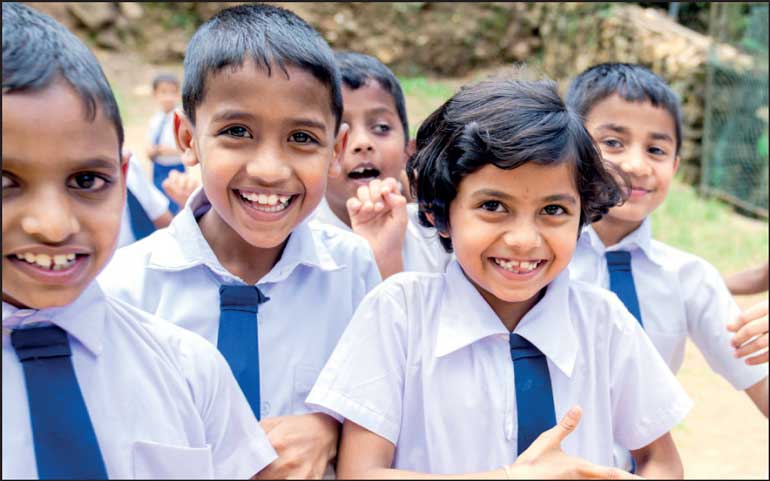Wednesday Feb 18, 2026
Wednesday Feb 18, 2026
Wednesday, 1 May 2024 00:30 - - {{hitsCtrl.values.hits}}

By Charumini de Silva
In a landmark decision, the Cabinet of Ministers approved amending both the Penal Code and the Criminal Procedure Code, which include provisions for the banning of all physical punishments across all sectors.
The move comes in response to the emphasis placed on the civil, political, economic, social and cultural rights of children by the Child Rights Convention, of which Sri Lanka is a partner.
“The Cabinet approved amendments to the Penal Code and Criminal Procedure Code to prohibit corporal punishment in all spheres,” President Ranil Wickremesinghe noted via ‘X’ on Monday evening.
He added that the United Nations Convention on the Rights of the Child (UNCRC) Article 19 urges protection against all forms of violence towards children. The Committee on the Rights of the Child, in General Comment No. 8, stresses that corporal punishment must be prohibited in all settings.
“The Cabinet approval paves the way for legal protections to ensure that no child in Sri Lanka suffers physical or mental violence, aligning with our commitment to safeguard the rights and well-being of every child,” Wickremesinghe noted.
According to Statute 19(1) of the convention, Government stakeholders are required to take appropriate legal, administrative, and educational measures to protect children from various forms of violence, abuse, discrimination and exploitation, including sexual exploitation.
“The decision underscores the Government’s commitment to protecting the rights and well-being of children and ensuring their safe and healthy development,” Cabinet Co-Spokesman and Minister Bandula Gunawardena said yesterday at the post-Cabinet meeting media briefing.
The joint resolution presented by the President Ranil Wickremesinghe and the Justice, Prison Affairs and Constitutional Reforms Minister Dr. Wijeyadasa Rajapakshe was approved by the Cabinet of Ministers.
A recent study conducted by the United Nations Committee on Child Rights in the Sri Lankan context revealed that a significant number of children are subjected to physical punishments, abuses and violence due to the lack of legal provisions in homes, institutions and schools.
In addition, a Supreme Court decision related to a fundamental rights petition filed by a student who experienced discrepancies in a hearing followed by an assault by a teacher held the relevant teacher and the Government responsible for violating the 11th statute of the Constitution.
Research has shown that physical punishments can have long-term impacts on children, both mentally and physically. Therefore, immediate legal amendments are necessary to address any acts categorised as cruel or daring physical or non-physical punishments.